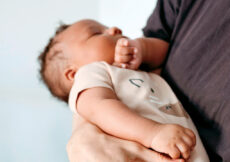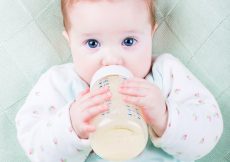Some people on the internet say a pint helps with lactation. Here’s a look at the science—or lack thereof—behind this popular parenting belief.
If you’re struggling with milk supply, a well-intentioned person may have advised you to chug a Guinness, since beer has been thought to increase supply. Beer was even prescribed to breastfeeding women in the 1960s. But where does this advice come from? Is it safe to drink alcohol when breastfeeding a baby?
It’s true that there are studies that suggest consuming beer may increase levels of prolactin, the hormone that makes milk. However, these studies were done on non-lactating people. Plus, it’s actually the barley in beer that causes the rise in prolactin, not the alcohol.
The overall safety of alcohol consumption while breast- or chestfeeding has long been debated. Different groups cite different evidence and give different advice. At the moment, there’s insufficient proof that it’s safe. What we do know is that alcohol passes directly from parent to baby through breastmilk, and that it may actually decrease milk production, due to its effects on the hormone oxytocin. Plus, some infants may dislike the taste of alcohol in the milk, possibly reducing their milk intake, which has risks of its own.
Health Canada recommends waiting two hours per alcoholic drink before feeding your baby. Similarly, the CDC in the US recommends waiting two hours after your last alcoholic drink to nurse or express milk for an infant. It also quells a myth regarding pumping and dumping, which does not, in fact, eliminate alcohol from milk faster than the body naturally removes it.
If you don’t have enough milk for your baby, there are safer things to try than an alcohol-containing beer.



































